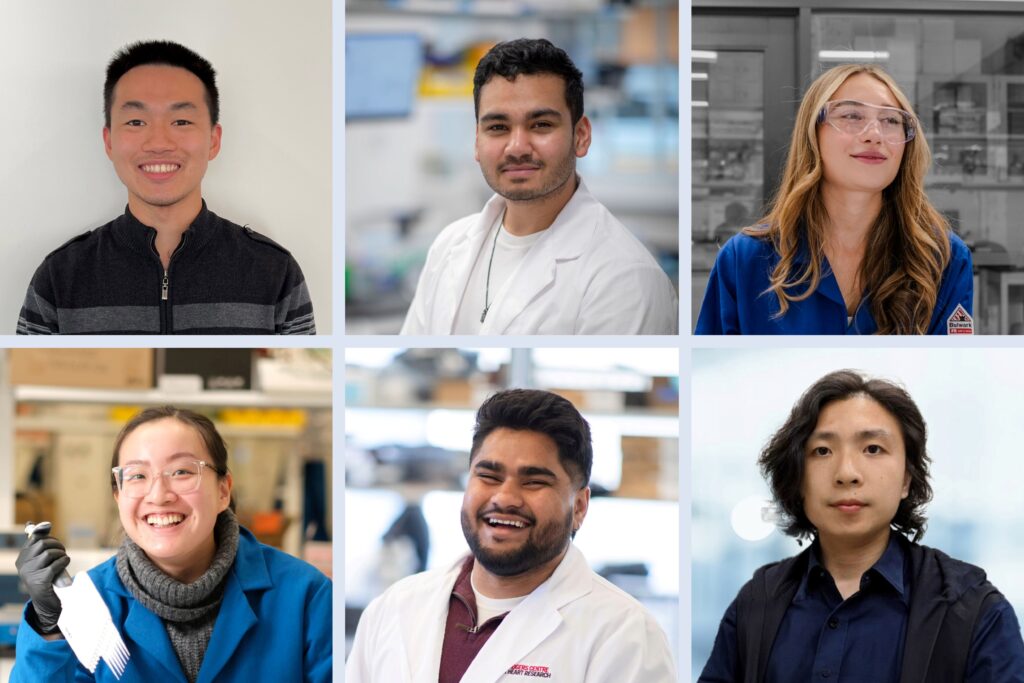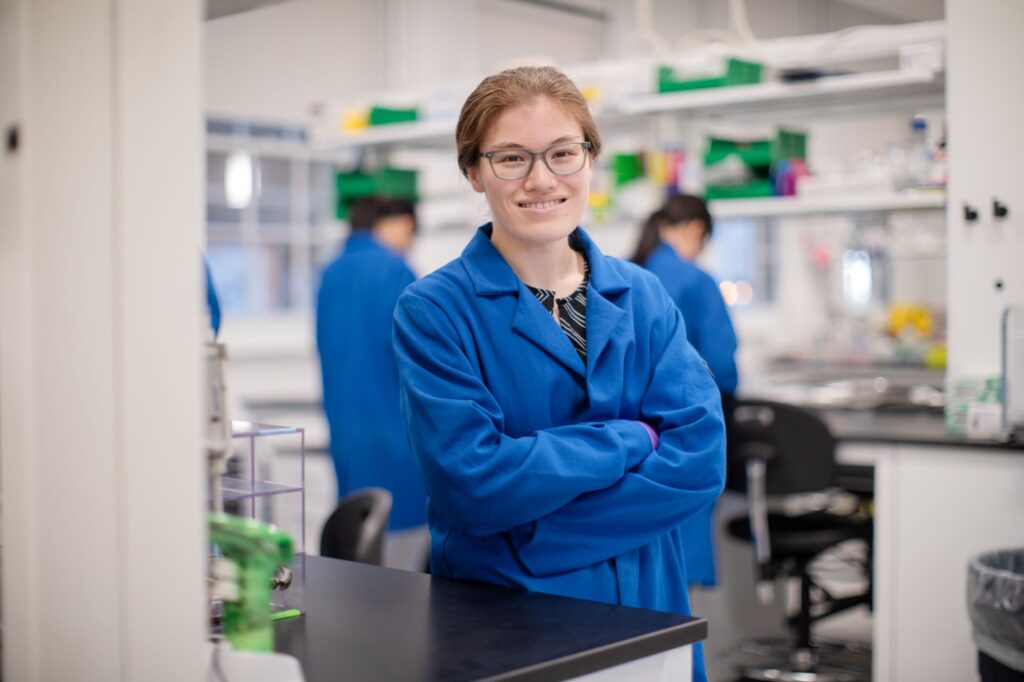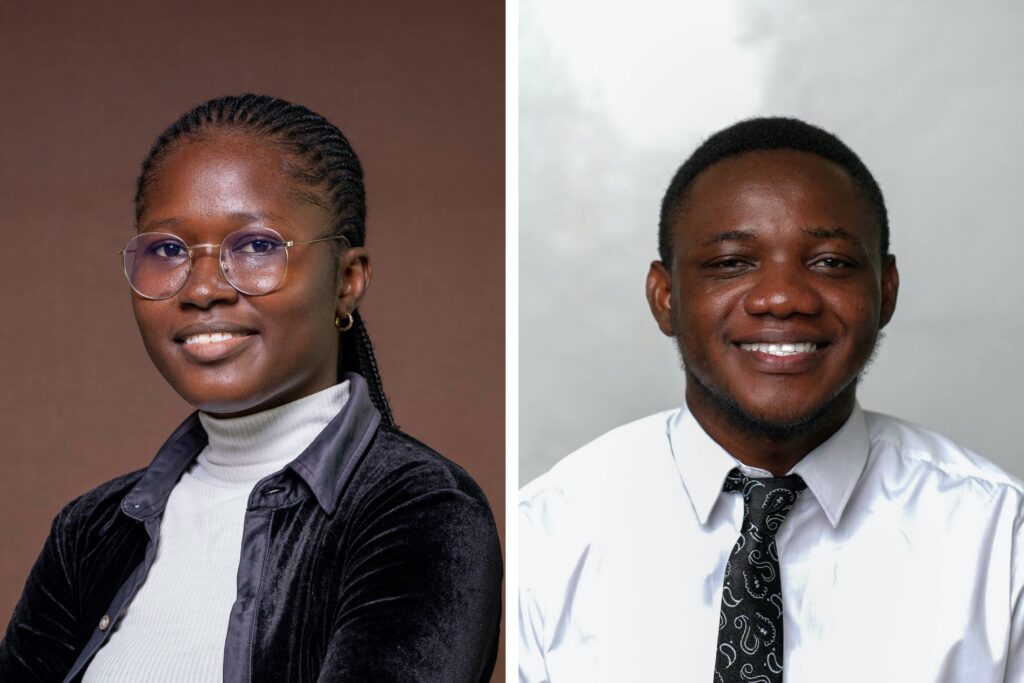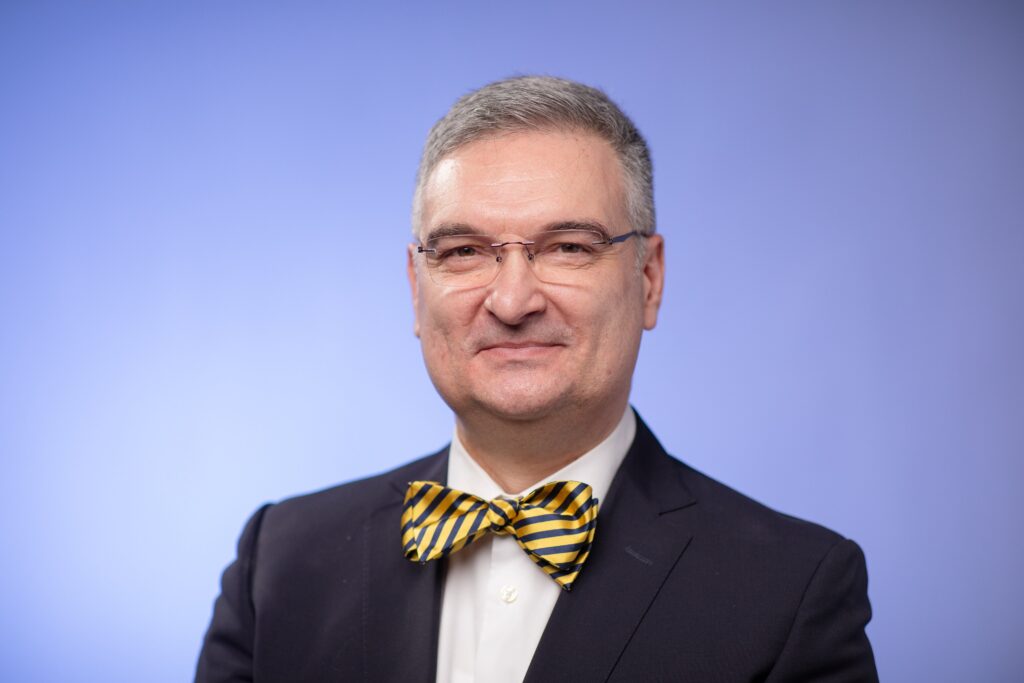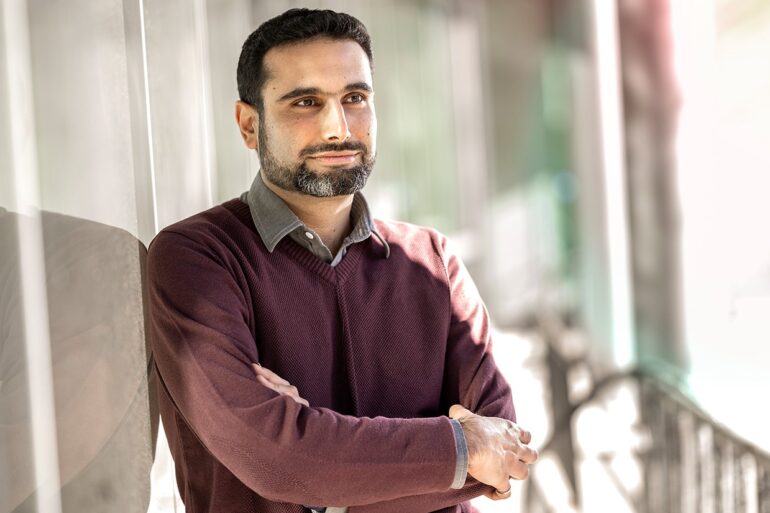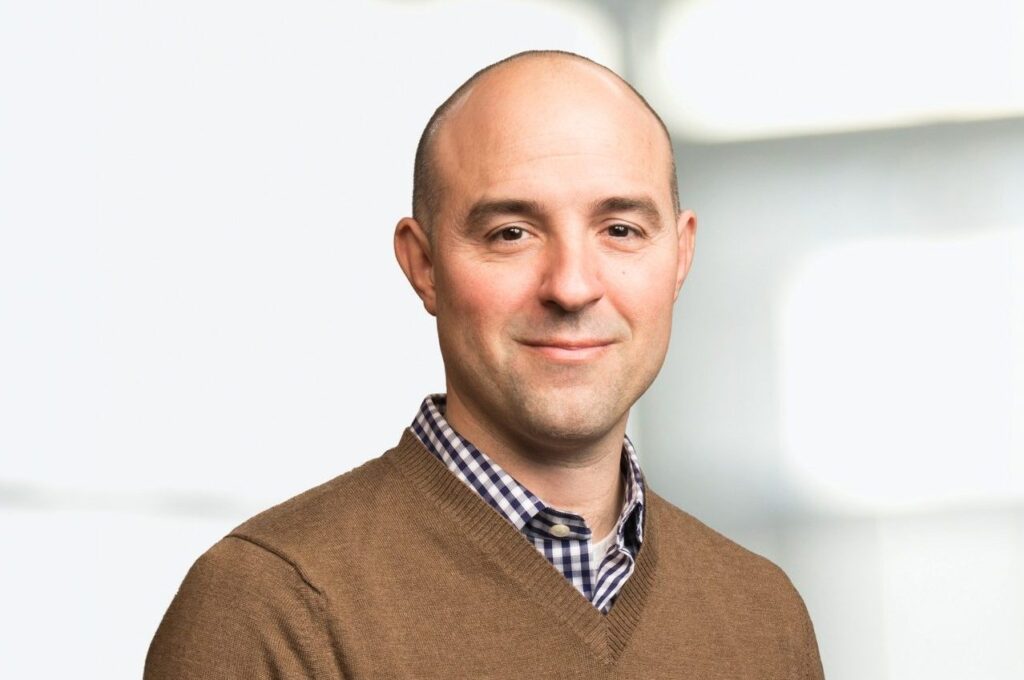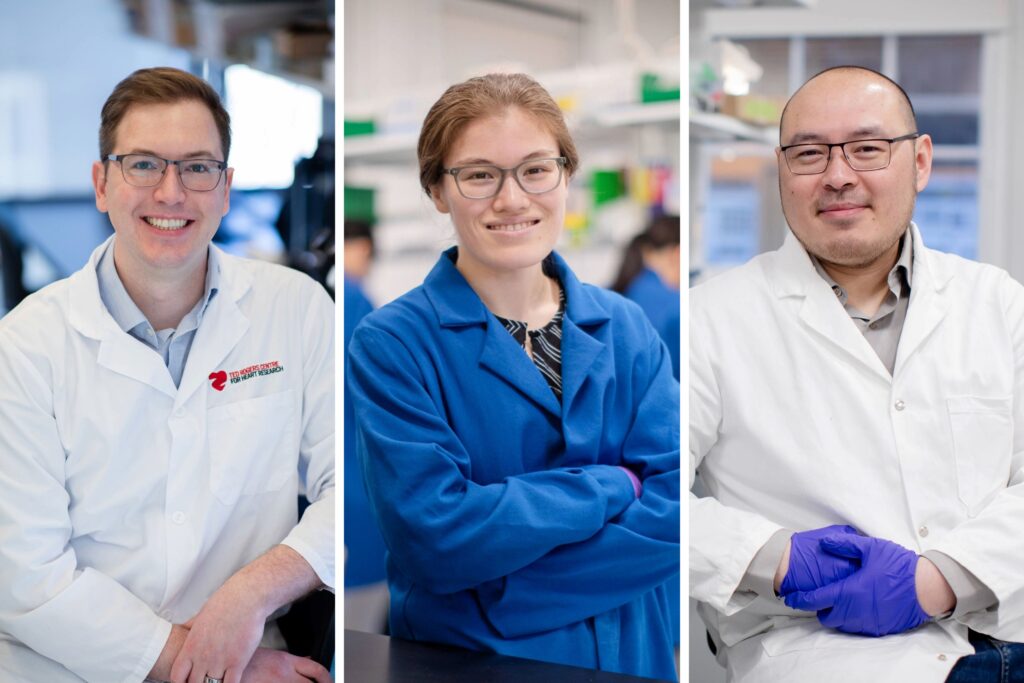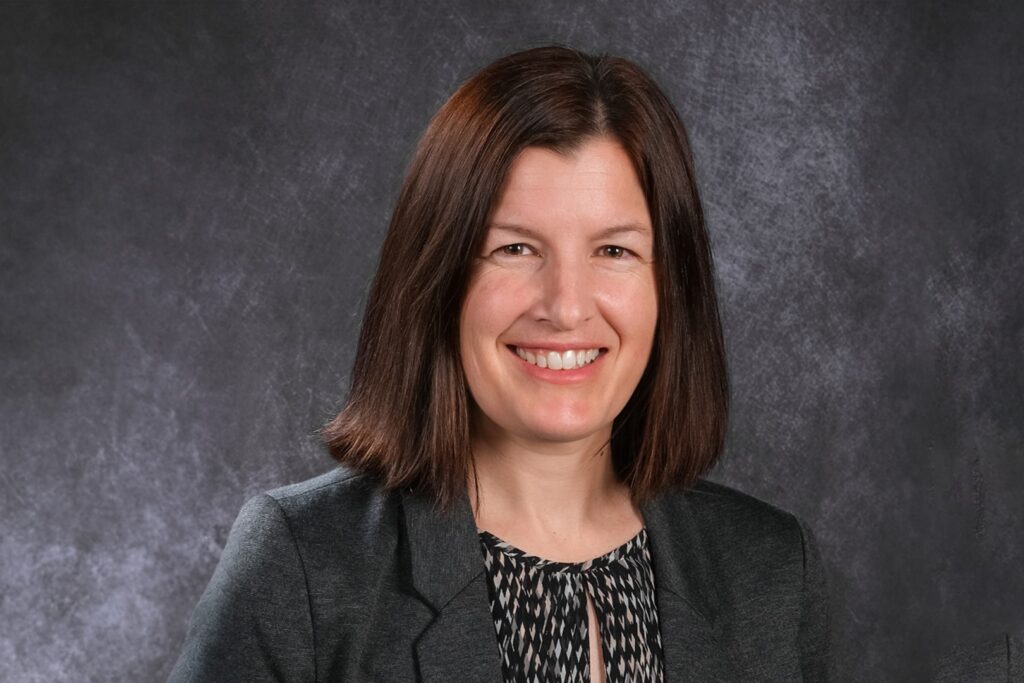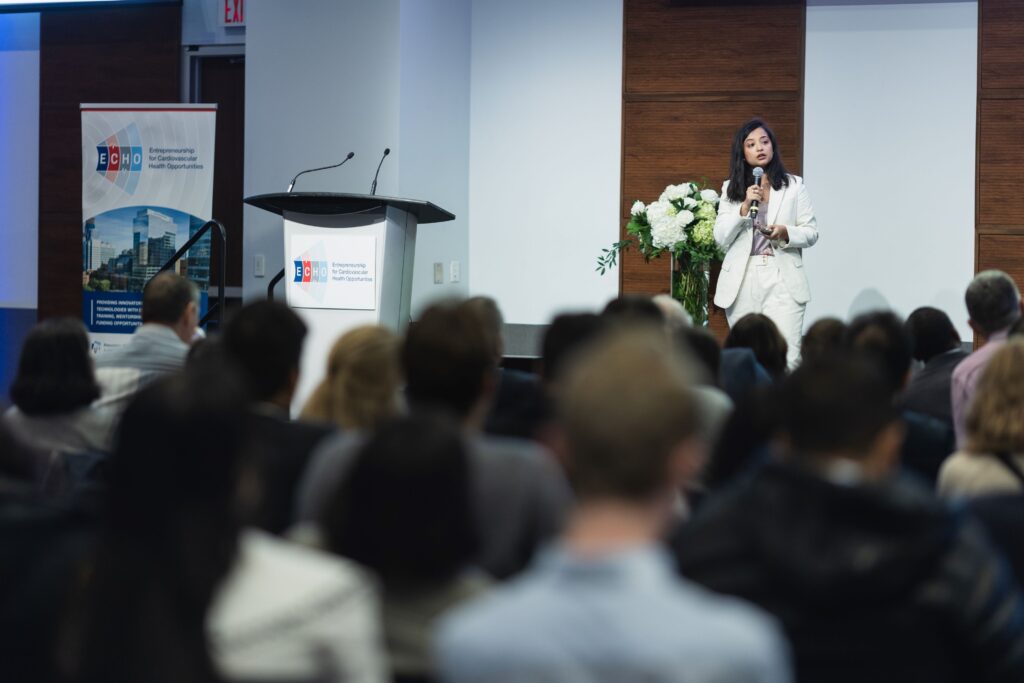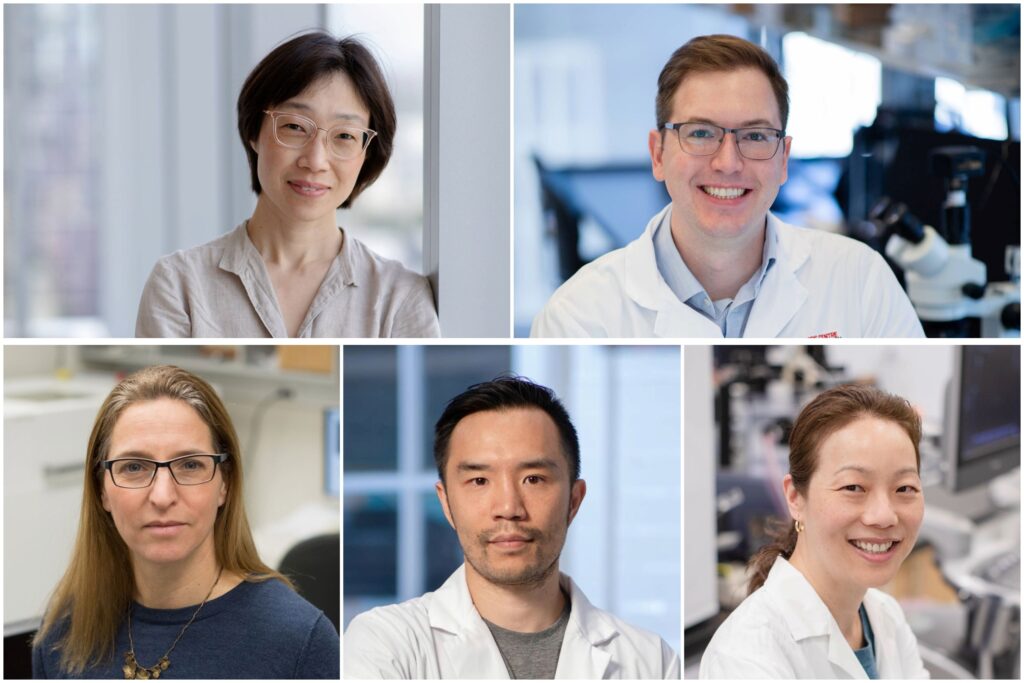News & Stories
Explore the latest news, stories, and groundbreaking research happening at the Institute of Biomedical Engineering. Stay updated on innovative projects, impactful discoveries, and the achievements of our talented students, faculty, and alumni shaping the future of biomedical science and engineering.
Quick Navigation
New imaging agent could improve early detection of inflammatory disease
Researchers from the Institute of Biomedical Engineering at the University of Toronto have developed a novel MRI contrast agent that may enhance the early detection of inflammatory diseases by targeting nitric oxide (NO), a key molecule involved in the body’s immune response.
This U of T Engineering professor is developing novel biomaterials to improve the treatment of chronic diseases
Maikawa is one of two U of T Engineering professors to receive funding from the latest round of the Canadian Foundation for Innovation John R. Evans Leaders Fund (CFI-JELF).
Researchers develop scalable DNA-based neural networks for molecular computing
Researchers at the University of Toronto have made an advancement in DNA-based neural networks, paving the way for more portable and scalable molecular computers. By implementing new strategies to overcome existing limitations, the team has developed neural networks that can process information quickly and accurately without relying on traditional electronic components.
Meet the 2024 Leadership of Biomedical Engineering Students’ Association
Introducing the Movers and Shakers of the Biomedical Engineering Students’ Association (BESA)! Meet the leadership team that will spearhead graduate student related extracurricular activities this year.
BME Director elected as fellow of Canadian Academy of Health Sciences
Dr. Milos Popovic was elected as one of the 49 fellows to the Canadian Academy of Health Sciences (CAHS). CAHS brings together Canada’s top-ranked health and biomedical scientists and scholars to make a positive impact on the urgent health concerns of Canadians.
BME welcomes Lucy Zuo as Operations Assistant & Events Coordinator
The Institute of Biomedical Engineering (BME) welcomes Lucy Zuo (they/them) as the Operations Assistant & Events Coordinator, starting on September 9th, 2025. In this role, Lucy will serve as the first point of contact for general inquiries, supporting the administration team, including the Director, Manager of Operations, and Project Manager.
BME alumnus Dr. Jeffrey Karp honoured with Distinguished Alumni Award
This top accolade is bestowed upon U of T Engineering graduates whose exceptional leadership and professional achievements have significantly benefited society, often on a global scale.
BME alumnus Dr. Amir Manbachi honoured with Research & Innovation Award
This prestigious accolade recognizes U of T engineering graduates who have developed, implemented, or discovered an innovative research program, process, or product that has made a significant impact on the profession, community, or society.
New research has potential to speed up forensic analysis in sexual assault cases
Professor Aaron Wheeler and his team has developed a new technique for analyzing evidence in sexual assault cases. The new approach could streamline the forensics pipeline and reduce delays in the processing of DNA evidence.
New co-delivery method for efficient siRNA and small molecule drug transport
Researchers at the University of Toronto have developed a method for co-delivering therapeutic RNA and potent drugs directly into cells, potentially leading to a more effective treatment of diseases in the future. This research, recently published in Advanced Materials, explores how ionizable drugs can be used to co-formulate small interfering RNA (siRNA) for more effective intracellular delivery.
Three BME faculty members awarded Connaught New Researcher Fund
Professors Aereas Aung, Daniel Franklin, and Caitlin Maikawa were awarded the Connaught New Researcher Awards, which support early-career faculty members in establishing their research programs. They are among 8 researchers from the U of T Engineering who received support in the latest round.
‘The future is already here’: University of Toronto’s Milica Radisic on organ-on-a-chip technology
Listen to the podcast hosted by The Hub, where they chat with University of Toronto professor and Canadian Research Chair of organ-on-a-chip engineering Milica Radisic discussing her world-leading research on organ-on-a-chip technology.
2024 Dorrington Award recognizes graduate students innovating myopathy research, mapping the liver and advancing personalized medicine
Heta Lad, a PhD candidate conducting research under the supervision of Professor Penney Gilbert, is one of the recipients of the award.
Physiatry, 3D Printed Prosthetics, and the Intersection of Engineering & Medicine: A Chat with Alumnus Dr. Amanda Mayo
After completing her MHSc at BME in 2004, Dr. Amanda Mayo transitioned into medicine, specializing in Physiatry, also known as Physical Medicine and Rehabilitation. Recently promoted to Chief of the St. John’s Rehab Program at Sunnybrook Health Sciences Centre, Dr. Mayo has dedicated over a decade to advancing patient care, collaborating on accessible prosthetics, and leading and mentoring in her field.
Empowering and educating entrepreneurship in cardiovascular translation
The Entrepreneurship for Cardiovascular Health Opportunities (ECHO) Program was founded by Dr. Soror Sharifpoor in 2018. Aimed at improving cardiovascular research commercialization, this 12-month program includes workshops, webinars, networking, and mentorship activities, culminating in a public pitch competition where ventures can win $250,000 in startup funding.
Joint efforts propel transformative scientific discoveries
Professor Caitlin Maikawa, a Schmidt Science Fellow, was recently featured by Times Higher Education about her interdisciplinary research at the Institute of Biomedical Engineering.
Five BME faculty members & collaborators receive a combined $2.6mil+ funding from CIHR
Professors Hai-Ling Margaret Cheng, Leo Chou, Daniel Franklin, Naomi Matsuura, and Cari Whyne and their collaborators have received a combined funding of $2.6mil+ from the Canadian Institute of Health Research (CIHR) as a part of the 2024 Spring CIHR Project Grant. The CIHR Project Grant program funds innovative health research projects with the potential to significantly advance health knowledge, healthcare, health systems, and health outcomes.




